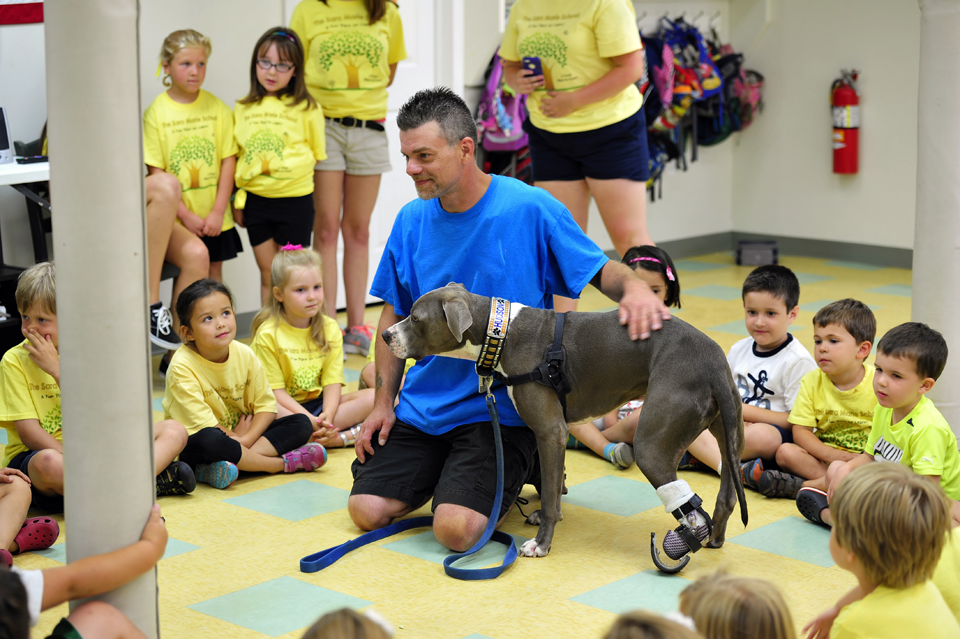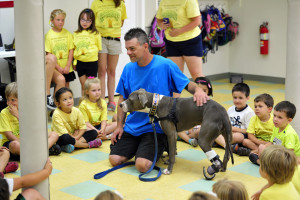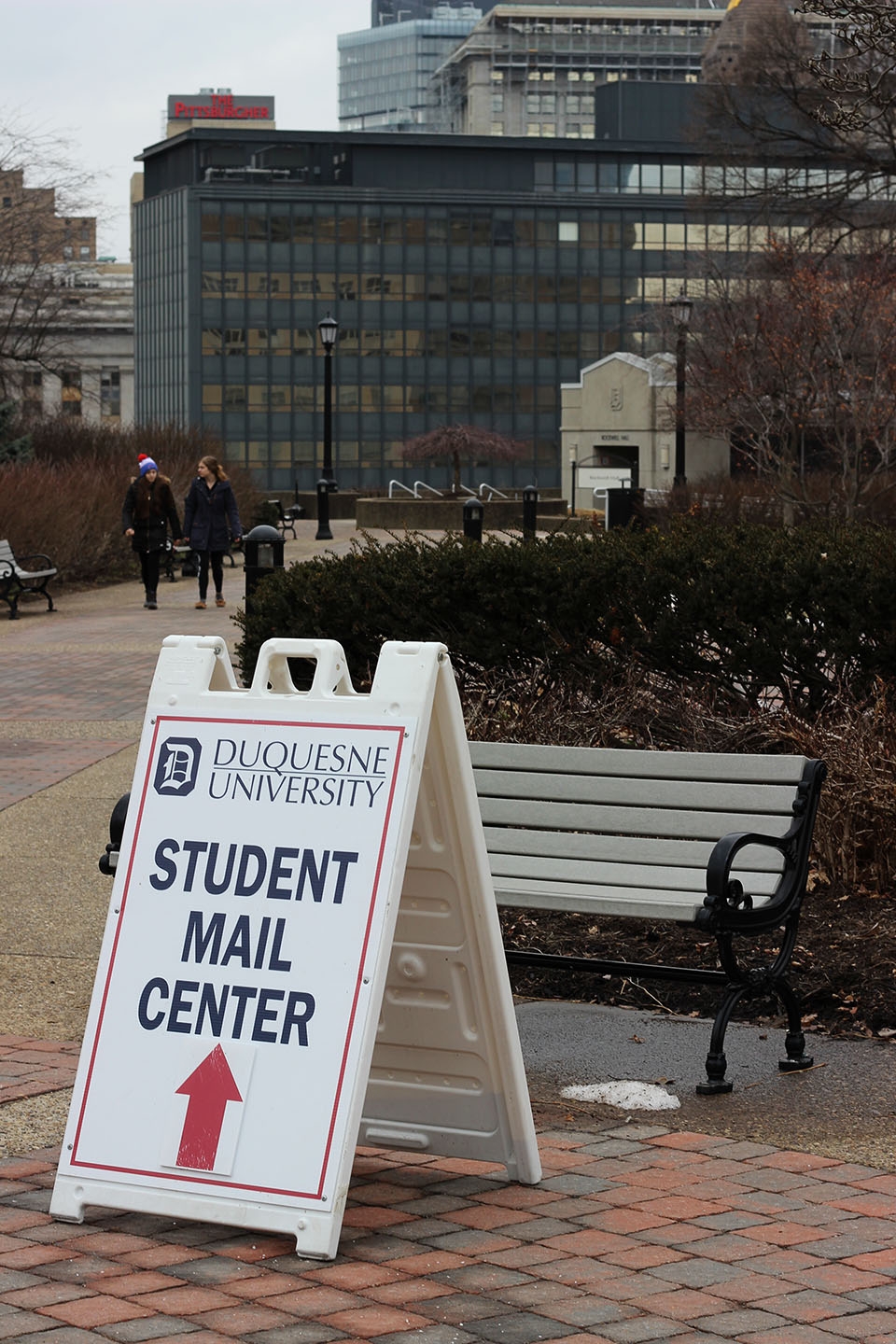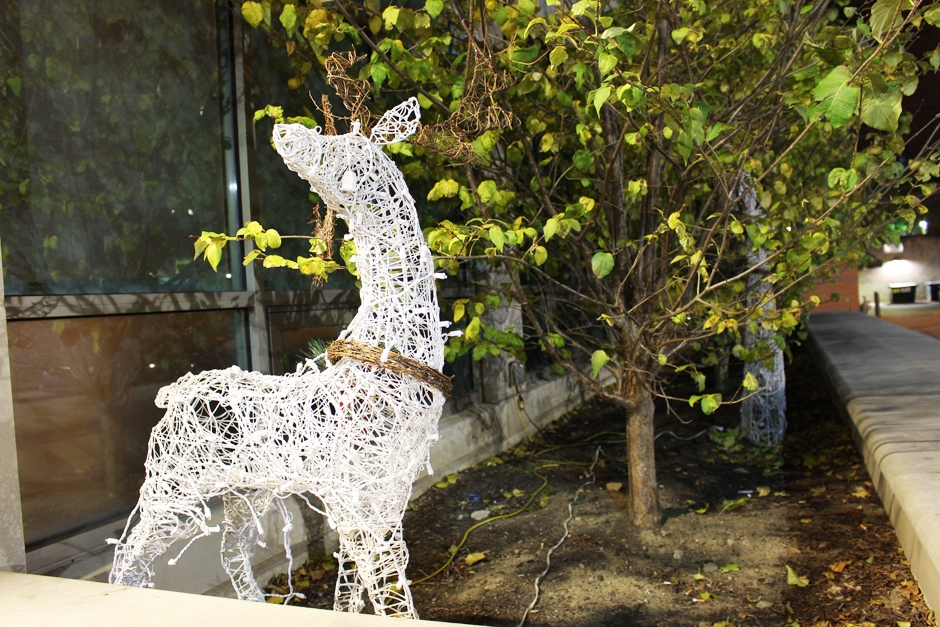
By Bridget Seelinger | Student Columnist

Despite contemporary research that says pets can help with a student’s overall health, many universities, including Duquesne, ban animals from residence halls and on-campus living.
Research says that the benefits animals bring are almost limitless. Animals are great listeners and don’t judge us when we say the wrong thing. They are a source of infinite joy and happiness, whether they are eating their favorite treat or reacting to the sound of your voice. Really nothing seems to get them down, and as a long-time pet owner, I can attest to the joy that owning a pet can bring.
But can pets be used as a source of healing?
Many mental health experts say they can. Pets are a great cure for stress, especially for students. Puppy therapy is becoming a norm during finals week at many colleges and universities. At Duquesne last semester when the puppy therapy was postponed during finals week, the outcry on campus could be heard from Oakland. Students really feel that spending a few minutes playing with puppies has a huge impact on their stress levels.
Pet therapy does more than cure stress resulting from high-pressure exams, though.
Dogs especially have been found to be a great source of healing for soldiers returning from war and suffering from post-traumatic stress disorder (PTSD). Experts say it’s because they mimic the relationship a soldier experiences with their unit: unending trust and vigilance. Dogs respond well to authoritative people and researchers found them as a way to help a soldier bring back the feeling of safety.
With PTSD, a patient is in constant “fight or flight” mode. Having a companion who will have your back no matter what, such as a dog, helps these patients switch off that “fight or flight” response and return to a sense of normalcy. Believe it or not, we have a lot of veterans on Duquesne’s campus. Allowing dogs would certainly make campus more “veteran friendly.”
Guinea pigs and turtles have also been found to be effective as therapy animals. According to a study done in Australia, autistic children who interacted with guinea pigs were found to have better socialization skills and less anxiety. French researchers looked into autistic children’s interactions with turtles and they found that the children learned non-verbal cues from handling turtles and used those skills when interacting with adults.
The court even upheld the effectiveness of guinea pigs. When Grand Valley State University tried to evict student Kendra Velzen’s guinea pig named Blanca from one of the residence halls in 2013, they found themselves in a bit of legal trouble. According to university policy, only therapy dogs and non-predatory fish were allowed. But Velzen claimed that the university was violating federal housing laws, citing that Blanca was her “emotional support animal.” After consulting with psychiatrists and mental health professionals, the university settled with Velzen for $40,000.
Seems like a lot for one little guinea pig.
Cats have also been found to be especially effective for Alzheimer’s and dementia patients. Patients describe their cat as a “constant.” When everything else is unsure, the affection that a cat shows is unwavering.
Ann Napoletan, whose mother suffers from Alzheimer’s, describes her mother’s relationship with the family cat Holly, stating, “Holly wore a perpetually annoyed expression on her feline face and loathed most humans, yet she never left my mom’s side; as much as she detested being picked up, that darn cat would even let Mom carry her around like a rag doll. It never failed to amaze me. Somehow Holly knew that her special person needed a special kind of love.”
Since Duquesne is always trying to attract students from all walks of life, allowing cats would go a long way towards attracting an older population.
The effectiveness of pet therapy is self-evident and simply impossible to ignore. This is why it is becoming more and more common to find pet therapy in hospitals and nursing homes across the country. It is also unsurprising that Duquesne would have puppy therapy here on campus during finals week. Hopefully as more research points toward just how effective pet therapy can be, puppy therapy will happen more often and for longer, and Duquesne will relax the rules on what types of pets will be allowed in residence halls.




